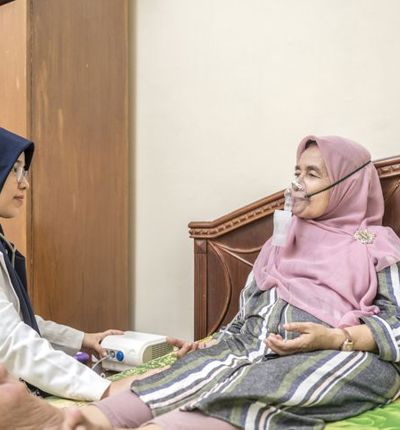
Respiratory disease claims
This page is for people who have suffered respiratory diseases caused by or related to medical negligence. For those who have developed respiratory problems due to your workplace conditions, visit our industrial and workplace diseases page.
Respiratory diseases cause problems with the chest, lungs and breathing. There are various causes, such as air pollution, inhaling occupational chemicals, dust and tobacco smoke, alongside infections during childhood. Certain diseases can be cured, while chronic respiratory diseases (CRDs) that are currently incurable rely on treatment to control symptoms and improve the quality of life.
Due to the seriousness of contracting any of these, a delay in treatment, misdiagnosis or negligent care of chest and lung problems – including infections – can have devastating consequences. In some cases, it can lead to the disease developing when it was otherwise avoidable, while in existing cases a lack of or mistreatment may see symptoms worsen.
If you or a loved one have suffered any adverse respiratory symptoms, or any chest and lung problems from negligent treatment for lung cancer to a pneumonia misdiagnosis that resulted in additional pain and suffering – or in the very worst case a death – you may be entitled to respiratory disease compensation.
Types of respiratory disease
Respiratory diseases cover a range of conditions. Some are minor and curable with the correct treatment, others can be chronic and far more serious. Medical negligence can increase the risk of catching some of these diseases, allow symptoms to worsen if left undiagnosed and even result in fatalities.
Around 334 million people suffer from asthma across the world. It is the most common chronic disease of childhood, affecting the airways of the lungs.
A form of chronic obstructive pulmonary diseases (COPD) defined by long-term inflammation of the airways. Treatment can help keep the condition under control.
Another form of COPD, this is due to damage to the air sacs in the lungs. It mainly affects middle-aged and older people who smoke, causing breathing problems that get worse over time.
Symptoms such as chronic coughing and harsh breathing can take years to develop, which can make it hard to diagnose.
Caused by bacterial, fungal or viral infection in the air sacs in the lungs. Most people recover within three weeks but it can be more serious in others – especially older people.
Blockage of an artery in the lungs by a substance that has moved there through the bloodstream. It can cause chest pains and coughing up blood.
A bacterial infection that mostly affects the lungs. It can be cured with proper treatment but is a serious condition.
More information about respiratory claims
The main types of negligence related to respiratory diseases include misdiagnosis, delayed diagnosis and mistreatment of symptoms and conditions related to such diseases. Examples of negligence cases our teams in London and Manchester have worked on include:
- Negligent prescription of antibiotics, which left a client with permanent lung and breathing problems.
- The fatal failure by two GPs to diagnose tuberculosis (TB) in a patient.
- A delayed diagnosis of non-Hodgkin’s lymphoma.
- The fatal failure to diagnose lung cancer after the misinterpretation of X-rays.
If you think you’ve received a pneumonia misdiagnosis, incorrect treatment for tuberculosis or any other chest, lung or breathing condition, you may have a strong claim for respiratory disease compensation.
Contact our clinical negligence team for a free initial consultation. Someone from the team will listen to your case, assess whether they think you have a claim and advise you on what to do next.
They may ask you questions about your medical history, current health and other related aspects of your life. Usually you will need to collect any supporting evidence related to your case that will strengthen your claim. This can include:
- Medical records
- Letter of complaint
- Financial documents
- Witness accounts
All of these can support your claim by backing up the treatment and diagnosis received, whether it was correct, the state of your health and any lost earnings due to this.

